Problem of Evil in Muslim Philosophy: A Case Study of Iqbal
Synopsis
The great enigma of existence of so much suffering and moral evil in the world and its religious significance has been among the most important and difficult problems of religion. The problem of suffering, moral evil, waste, death, meaninglessness, absurdism, the "silence" and "absence" of God has been a common problem for religion , philosophy and great art and literature, especially during modern times which are characterized by extreme obtrusiveness of evil. Modern man cites this as one of the major reasons for his disbelief in religion, especially in traditional theism. Pessimist and nihilist tendency of much of modern thought which has a negative bearing on religion is attributable to faulty appropriation of the problem of evil. Traditional Christian theistic answers to the problem are increasingly felt to be inadequate and unconvincing. What is surprising is that Islam's unique theological and metaphysical resources have been largely ignored in tackling the problem of evil by both Muslim and non-Muslim scholarship. There is great dearth of comprehensive and systematic work on Islam's perspective on the problem of evil. The present study is an attempt to present and also reread traditional Muslim theological and metaphysical perspective on the issue and thus fill the vacuum. After a brief critical survey of modern response to the existence of evil and traditional Muslim theological approaches to the same it discusses in detail modern Muslim philosophical approach as presented in the writings of Iqbal - one of the most important philosophers of modernist Islam who alone amongst the great Muslim intellectuals of Indian subcontinent has seriously reckoned with the problem in contemporary language. There has been no systematic study of Iqbalian position on the problem of evil. This has contributed to certain misunderstanding and confusion in general Iqbalian studies. The present study is a critical evaluations from modern as well as traditionalist perspectives, of Iqbal's attitude towards this important theological problem. It is the perennialist or metaphysical approach to theodicy that forms the background as well as provides the critical lens through which modern secular as well as modernist Muslim responses to the problem are evaluated.
Read more
32.40
29.16
$
36.00 $
Free delivery Wolrdwidе in 10-18 days
Ships in 1-2 days from New Delhi
Membership for 1 Year $35.00
Get it now and save 10%
Get it now and save 10%
BECOME A MEMBER
Books by the same author

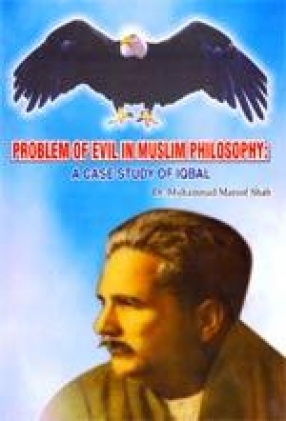
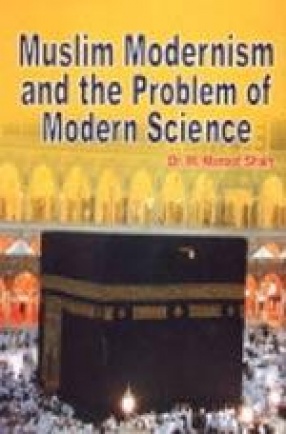
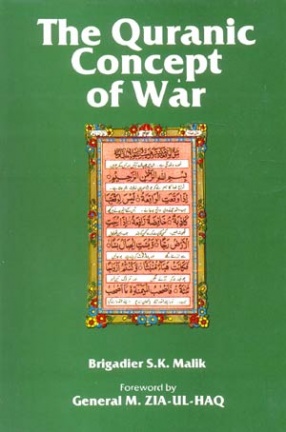
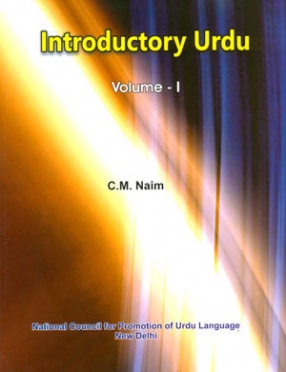

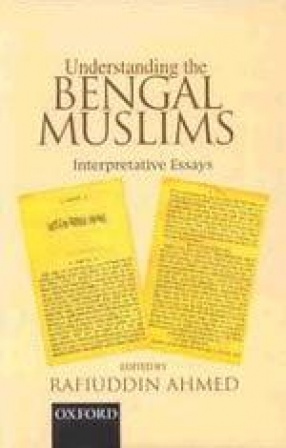

Dr. M. Maroof’s Shah’s brilliant and provocative study Problem of Evil in Muslim Philosophy: A Case Study of Iqbal is undoubtedly a worthy addition to the Muslim philosophical studies in general and the Iqbalian studies in particular. The book published only recently (2007) by Indian Publishers’ & Distributors, Delhi, consists of five chapters, covering about 190 pages. Its apt title tells us about the subject and scope of the book and should catch the eyes of all those interested in Iqbal and the Muslim philosophical thought. What becomes evident at a mere cursory glance of its pages is that the book makes certain demands upon its readers because it is steeped deeply in philosophical, religious and literary depths and may cause some significant difficulty to the readers not well-versed with philosophy and religion. But then Iqbal’s original philosophical work The Reconstruction of Religious Thought in Islam which Dr. Maroof takes for examination is no easy study and it is expected that all genuine Iqbal scholars who have seriously undertaken the task of understanding Iqbal in totality, would be undaunted by any degree of breadth and profundity in a critical work on the poet-philosopher’s ideas. Dr. Maroof’s book strikes one by its immense breadth and depth. This erudition is always fascinating but at times quite overwhelming. Here is God’s plenty. One might say about the author’s staggering scholarship that leaves no discipline of knowledge whether religion, metaphysics, literature both Western and Eastern, mysticism and even science and psychology, outside its purview. One can not help appreciating the author’s attempt, especially when one learns that he is yet to attain the age of thirty. The book is an attempt to analyse the age-old problem of existence of so much suffering and evil in the creation of an All-Wise and good God from what has been called the traditional perennialist point of view. Although it is focussed on Iqbal’s position on the problem in question it does not rest content with offering a critique of Iqbal’s views but ingeniously provides an alternative perspective on the problem of evil. Dr. Maroof has subjected some of Iqbal’s ideas to a most rigorous critical analysis and concluded that although Iqbal’s project is commendable on account of some valuable and perceptive insights, there lies a fundamental problem with his paradigm of thought. Dr. Maroof argues that Iqbal’s rationalist-modernist premise from which he approaches the problem of evil lands him into a philosophically vulnerable position. In fact, as Dr. Maroof has shown, not only Iqbal but the earlier schools of Muslim theology like the Ash’arites and the Mu’tazilites have also erred in a fundamental way in coming to terms with the problem of evil. Their approach is one of purely theological nature permeated by an inescapable anthropomorphic and anthropocentric character. Not theology but traditional mysticism and traditional metaphysics offers an answer to the problem of evil. The traditional Sufistic position is revisited and forcefully argued in favour of the modern perennialist thinkers like Frithjof Schoun (Isa Nuruddin), Syed Hussain Nasr, Rene Guenon (Abdul Wahid Yaha), Coomaraswamy and the like. The insights of these writers who align themselves with the traditional metaphysical and mystical thought provide the author with the critical tools to examine Iqbal’s position. What then are, in brief, those main points in the Iqbalian position on the problem that are subjected to critique? The author argues that it is the fact that Iqbal approaches the problem from a personalist philosophical or individualist metaphysical and dualist theological perspective and assumes the veracity of modernist-humanist-rationalist premises while almost entirely ignoring the work of the great Sufi masters. These premises render Iqbal incapable of convincingly handling the problem. Dr. Maroof finds Iqbal’s concept of khudi or ego problematic. Needless to say that the concept has been at the centre of debates on Iqbal. Dr. Maroof finds Iqbal’s concept of ego incompatible with the traditional mystical concept of self, fana and annata (annata is not the denial of the Self but only of personality or functional ego). Iqbal conceives even the ultimate Reality, God, as an all-inclusive Ego. This ego-centered approach of Iqbal is at the centre of all problems from a perennialist point of view according to which the Supreme Principle is undifferentiated divinity or suprapersonal Absolute. Iqbal’s starting point is Divinity or differentiated Reality (personal God conceived as the Ultimate Ego) rather than the Absolute, the Supreme Principle, the Essence or Pure Being or Beyond-Being. Absolutizing of the concept of God as a person or reduction of the Supreme Principle or the Absolute to personal God conceived in more or less anthropomorphic sense causes an insurmountable philosophical obstacle. The Epicurean argumentation that God is either Ominipotent or Good, or neither, but in no case both, seems irrefutable within the paradigm of the ego-centric theologies as the author argues in the last chapter. Purely theological and individualist metaphysical point of view that Iqbal’s is, finds theodicy quite difficult. Iqbal’s modification of classical theism into panentheism, though an unorthodox move, fares better against the problem of evil but, as the author points out in his chapter titled “Panentheistic Response to Evil and Iqbalâ€, he fails to cash on it for his theodicy. The perennialist alternative offers a better way to tackle the Epicurean argument. For the perennialists Beyond-Being which is attributeless and amoral and accomodates All-possibility precedes Being which is good, moral and identifiable with the common notion of a personal God. Without taking recourse to this idea of Beyond-being, no solution to the problem of evil is possible. The Islamic proclamation of taqdir contained in the traditional declaration of iman-i-mufassal (i.e., good and evil emanate from God) is interpreted by the perennialists to mean that both issue forth from the Divine Nature itself. Dr. Maroof refers to Carl Jung’s Answer to Job in which Jung argues that the dualism of good and evil as understood by dualistic Christian theologians in general is based upon an erroneous idea of God. Even the Prophet of Islam (S.A.W.) is reported to have prayed to God in these terms “I seek your refuge from youâ€, which is reminiscent of Job’s words in the Old Testament. Dr. Maroof writes. The crucial distinction between the impersonal Divinity and the personal God as maintained by traditional metaphysics helps to shift the debate so that the cutting edge of most critiques of theodicy is lost. All religions have the doctrine of Absolute as Supreme Principle though the personal dimension of the Divinity may be either absent as in Buddhism or emphasized so much as one may lose sight of the Boyond-Being.†(p.183) Iqbal’s humanism and progressivism are inextricably bound to his concept of ego. As against the traditional mystical belief which regards man’s journey in time a movement away from the sources of Divinity and Eternity Iqbal’s evolutionary progressivism leads him to conceive of time as a necessary condition for the ego’s trail. Pain and evil for Iqbal are only meant to strengthen the ego. Time itself is sacred since there is nothing as profane world. Ego has to march towards its goal of immortality and its trial lies in successfully overcoming the ordeals it encounters. Matter, instead of being profane, is a prerequisite for the realization of spirit. The idea of man’s trial and tribulation in time, although a prominent feature of the traditional mystical thought, is appropriated by Iqbal in the personalist account. For Iqbal the world is the vale of ego-making, the trials and pain are opportunities to win salvation which is nothing but winning the reward of ego’s permanence. Heaven, therefore, is the state where ego has successfully left behind the possibility of its dissolution. This position of Iqbal needs qualification from the traditional perennialist point of view as any notion of personality or individuality is inadmissible in the Garden of Essence, in the beatific vision as duality and separation are finally transcended. Dr. Maroof puts these ideas as under :Heaven or nirvana of Iqbal – which he equates with the winning of permanent ego – is hell for such great religious traditions as Buddhism, Advaitic Hinduism, nontheistic mysticism and even for the Sufis of Islam. The ego has to be got aid of according to all of them. The notions of annata and fana or the negation of the self and mystical understanding of Islamic Shahada – nothing exists in reality except God-all imply transcedence of what Iqbal calls the ego. (p65) Iqbal’s heaven comes close to the traditional conception of it only if functional ego or efficient self is totally transcended and appreciative self alone remains The mystical tradition, the author argues, has always emphasized being over becoming, and sought to transcend time. Iqbal, on the contrary, is guilty of divinizing time itself. This idea of eternal becoming suggests the impossibility of escape from time even in eternity. This too runs counter to the traditional mystical thought. Dr. Maroof argues that Iqbal’s criticism of the essential idea of the original sin lacks a perceptive insight as the idea contains a significant philosophical truth of man’s separation from his divine source. The mystics and perennialists have interpreted the original sin in terms of man’s essential depravity and held that no salvation is possible without Grace. Iqbal almost entirely ignores the seminal concept of grace and stresses almost exclusively what he calls aml, the deed. For mystics deed by itself is capable of nothing without Grace. Iqbal, true to his rationalist-modernist premise, tries to provide rational defense to the religious ideas of salvation and damnation by positing the unconditional freedom of man, holding him to be the ultimate master of his own destiny. It goes to the credit of the author that he has pointed out what has remained an issue of discussion for Iqbal scholars, namely that his ideas in Reconstruction are somewhat at variance with his ideas in his poetry. Dr. Maroof sees in Iqbal’s poetry, especially of Javed Nama, Bali Jibreel and other later poetical works, ample resources for formulating viable theodicy. For Iqbal the poet, Love and Detachment (faqr) rather than Reason are the guides into the mysteries of existence. This constitutes a valuable critique of his own ideas expressed in Reconstruction.
Bibliographic information